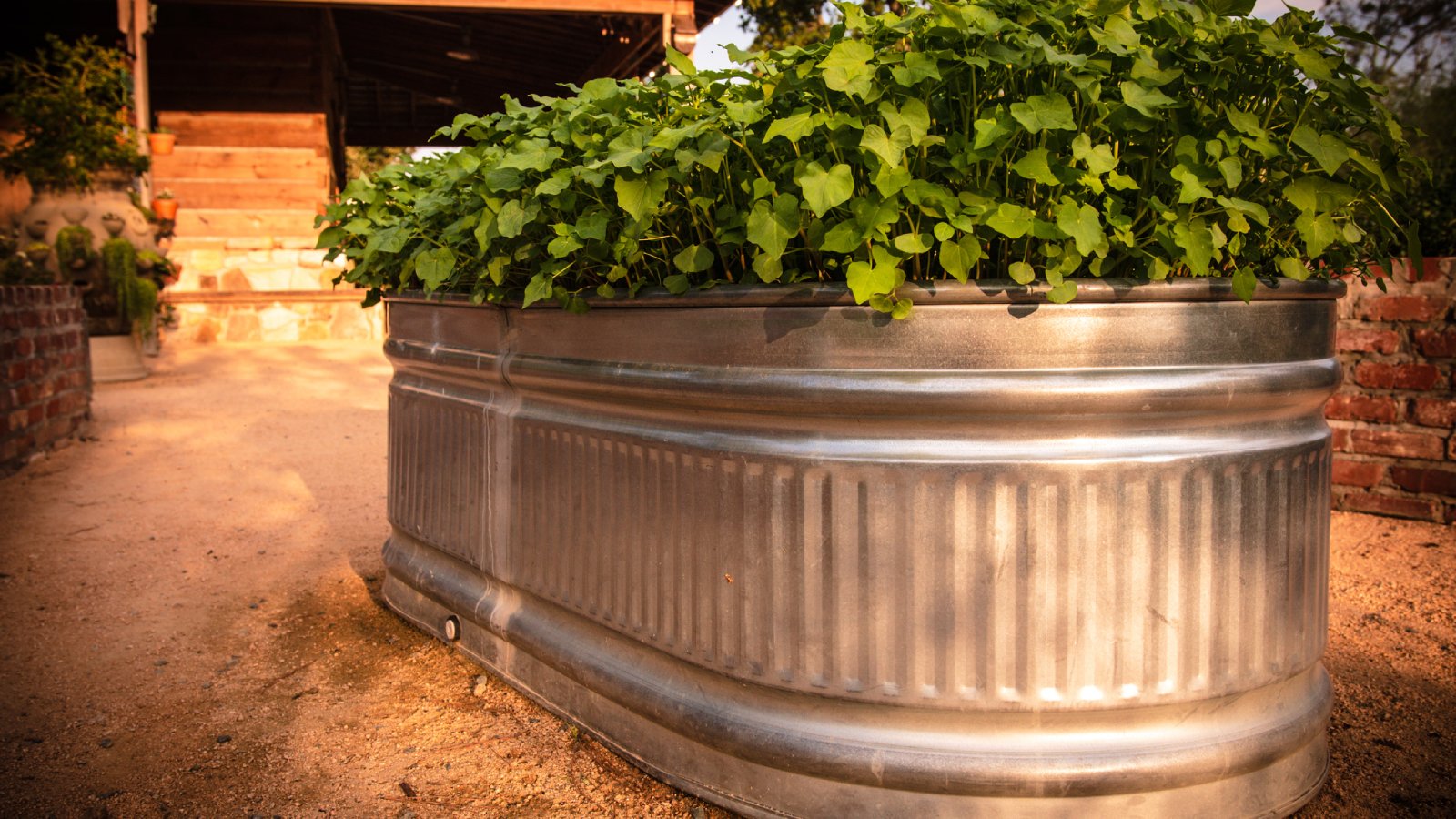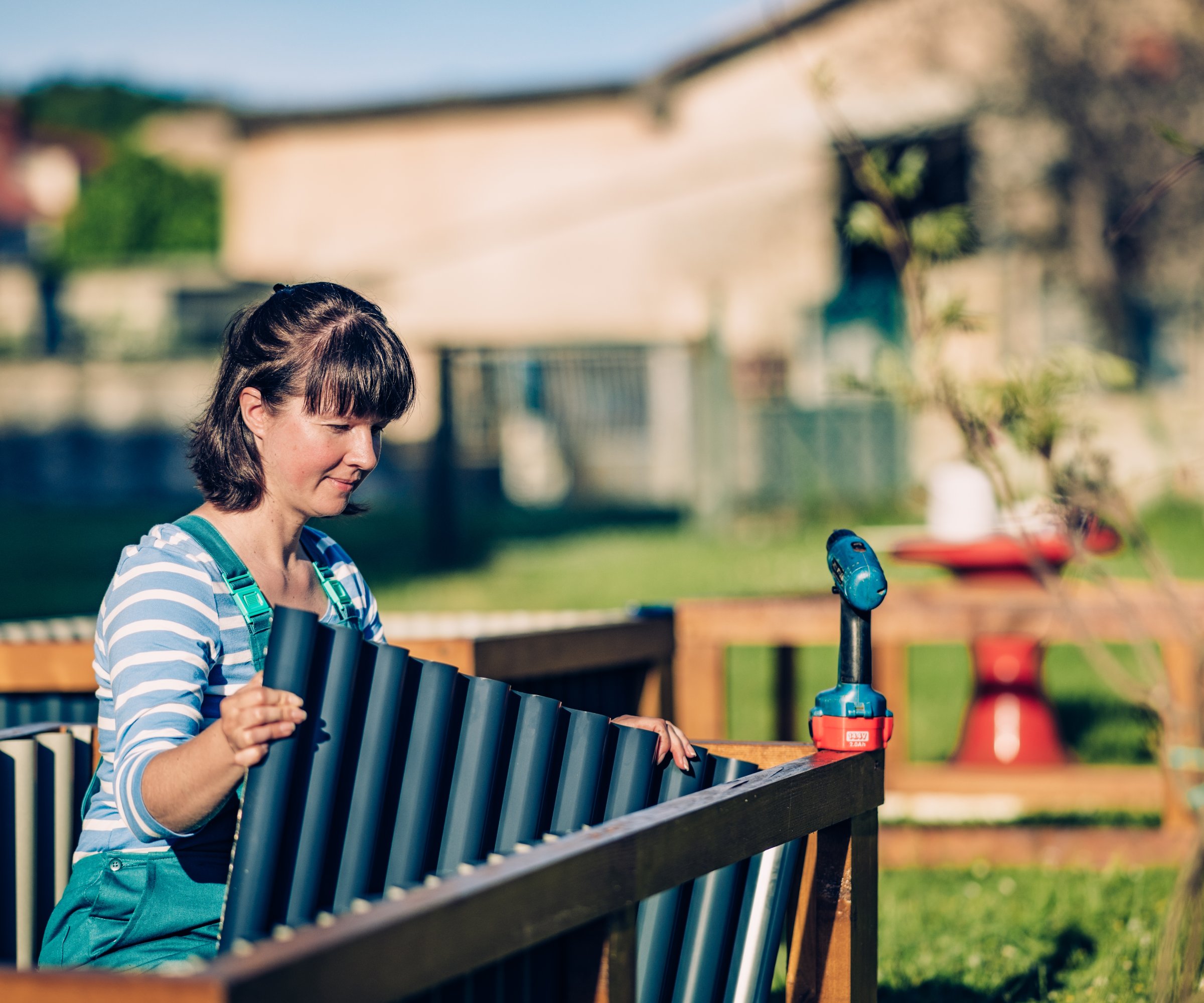Metal Raised Garden Beds: Benefits, Types & Top Picks For Your Garden
Metal raised garden beds get fewer weeds, aren’t compacted by foot traffic, and can easily grow both in-bed and vertical crops, effectively doubling your yields.

Liz Baessler

Raised garden beds are incredibly popular for a variety of reasons. Often the only question is what type of material to use for your raised beds. There are numerous options available from treated wood metal to plastic to cinder block, and the list goes on. Each option has its share of up and downsides.
One obvious material choice is metal, and it's gaining a lot of popularity, particularly with our staff here. What are the pros and cons of metal raised beds? For instance, are galvanized raised beds a better option than other types of metal? How about using old metal that may leach into the soil?
Here's everything I’ve unearthed about the various types of metal planter boxes or beds and their pros and cons.
Benefits of Raised Garden Beds
As I age, yes, it’s happening, I realize how important accessibility is becoming... especially in my garden. Raised garden beds help me access my plots with less difficulty, making everything from planting to watering to harvesting easier on my body.
Accessibility isn’t the only benefit of raised beds, however. Raised beds also warm faster than in-ground garden beds, meaning you can plant and harvest earlier. You can easily control the type of soil without digging up half the yard, which means you get the correct pH and nutrients for your crops right there at your fingertips.
Different Types of Metal Garden Beds
As mentioned, raised garden beds can be made out of all sorts of materials, each with their own pros and cons. Metal happens to be a long-lasting material that has definitive aesthetic appeal in the garden.
I live in the city, but literally a 5-minute drive out the landscape is rural - dotted with farmhouses, barns, cattle, and fields of hay and other crops. I mention this because long before they became popular, I was familiar with one of the classic metal raised beds - the cattle trough or stock tank.
Sign up for the Gardening Know How newsletter today and receive a free copy of our e-book "How to Grow Delicious Tomatoes".
Out in these rural areas, the cattle trough is used to feed and water livestock, but made its way into urban areas as a sleek raised garden bed option. Today I see them everywhere filled with flowers or used as mini veggie garden plots.
On the downside, metal beds can be heavy and in some climates get too warm for heat-sensitive plants. Low-quality metal beds may have rough or sharp edges, which can be dangerous, or leach zinc and cadmium into the surrounding soil over time.
That's why our expert staff recommends safe and sustainable metal raised garden beds from Vego. Their high-quality modular beds are made with 100% non-toxic materials that are food safe and rust-resistant. They also have reinforced safety edges that prevent injuries while gardening.
Vego's metal beds come in a variety of fun colors that will fit any landscape aesthetic. Plus, the paint they use is the only non-toxic USDA approved paint on the market.
Metal Raised Garden Bed Ideas

There are multiple reasons for choosing a metal garden bed. They last for a long time. Research indicates that they can last for 20 years - many times longer than their wooden counterparts. They're easy to maneuver into an area and set up is a breeze. They are less likely to foster pests and are low maintenance.
They are incredibly tidy and aesthetically pleasing and available in an array of shapes from oblongs to squares. Many have legs or tall sides to give them extra height, or come in a fun array of colors beyond shiny steel.
Frequently Asked Questions
What do you put on the bottom of a metal raised garden bed?
There are all kinds of things you can put at the bottom of a metal raised garden bed. If you have a self-contained unit like a cattle trough, lining the ground with layers of cardboard will likely be enough to slow weeds.
However other structures may need burlap sacking, landscape fabric, stainless steel mesh or wide mesh hardware cloth. These heavier-duty materials are excellent to keep critters like gophers and moles from digging in your bed.

Amy Grant has been gardening for 30 years and writing for 15. A professional chef and caterer, Amy's area of expertise is culinary gardening.
- Liz BaesslerSenior Editor